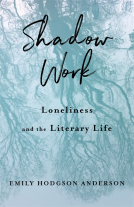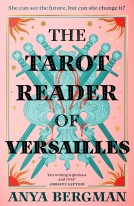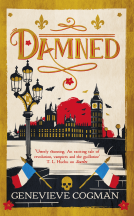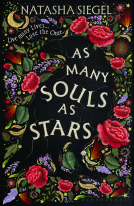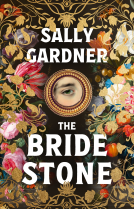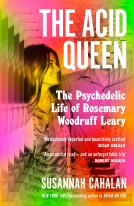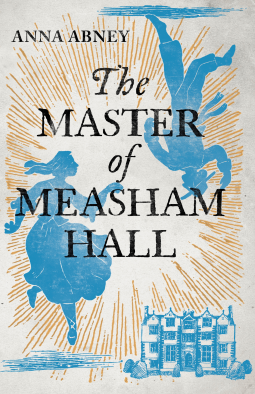
The Master of Measham Hall
by Anna Abney
This title was previously available on NetGalley and is now archived.
Send NetGalley books directly to your Kindle or Kindle app
1
To read on a Kindle or Kindle app, please add kindle@netgalley.com as an approved email address to receive files in your Amazon account. Click here for step-by-step instructions.
2
Also find your Kindle email address within your Amazon account, and enter it here.
Pub Date 15 Jul 2021 | Archive Date 30 Jun 2021
Talking about this book? Use #TheMasterofMeashamHall #NetGalley. More hashtag tips!
Description
1665.
It is five years since King Charles II returned from exile, the scars of the English Civil Wars are yet to heal and now the Great Plague engulfs the land. Alethea Hawthorne is safe inside the walls of the Calverton household as a companion to their daughter. She waits in anticipation of her brother William’s pardon for killing a man in a duel before they can both return to their ancestral home in Measham Hall.
But when Alethea suddenly finds herself cast out on the streets of London, a long road to Derbyshire lies ahead of her. Militias have closed their boroughs off to outsiders for fear of contamination. Fortune smiles on her when Jack appears, an unlikely travelling companion who helps this determined country girl to navigate a perilous new world of religious dissenters, charlatans and a pestilence that afflicts peasants and lords alike.
Anna Abney's immersive debut is a fast-paced, multi-layered novel that intimately explores the social and religious divides at the heart of the Restoration period.
Available Editions
| EDITION | Hardcover |
| ISBN | 9780715654354 |
| PRICE | £14.99 (GBP) |
Links
Featured Reviews
I really enjoyed this book by Anna Abney. I found that the book started off slowly but as we got further into the story, I had a really hard time putting it down. I wanted to know how things turned out for Alethea and she was such an engaging character. The writing was also beautiful! Thank you Netgalley and Duckworth Books for the ARC but all thoughts are my own.
 jean luc e, Librarian
jean luc e, Librarian
The Adventures and misadventures of Alethea Hawthorne, a 20 years old Catholic left on her own devices and forced to leave London, a city totally ravaged by the plague in the Master of Measham Hall, a rollicking and very entertaining Restoration romp brilliantly and elegantly written by first time novelist Ana Abney.
Determined to save her life and reach her father's estate in Derbyshire, a smart & plucky Alethea will soon embark on a perilous odyssey across an England devastated by a silent and merciless killer and where the embers of the bloody Civil War are still slowly smoldering and threatening to rekindle at any moment the deeply devisive religious passions still running deep within its society. Fiendishly plotted and blessed with a cast of unforgettable and very colorful characters, this action packed novel is a masterful tapestry of mid 17th century England and its glorious Restoration. A basketful of delicious surprises that the reader needs to enjoy without any moderation! Hopefully Ms. Hawthorne will be back very very soon.....👍
Many thanks to Netgalley and Duckworth for this terrific ARC.
 Claire G, Reviewer
Claire G, Reviewer
I received The Master of Measham Hall as part of a NetGalley giveaway.
Shortly after the English Restoration, Alethea Hawthorne is serving as a companion to a young woman of standing as plague ravages London. When a stroke of cruelty leaves her homeless and friendless, she embarks on a journey into the English countryside, camping and living with religious separatists while beginning to question her royalist Catholic upbringing. Circumstances soon force her out of this situation as well and she begins to make her way towards her ancestral home to seek aid from her father and unfriendly stepmother. Still more heartache awaits, however, and Alethea finds herself forced to undertake a ruse that will lead her to challenge her question her worth and place in society.
I wasn't sure what to expect from this book, even as I was reading it, but on the whole I found it very worthwhile. It effectively paints a portrait of the deeply contentious nature of religious divisions and the more unsavory aspects of both sides of the debate. In some ways the ending feels a bit unsatisfying (the book seems to be begging for a sequel) but I also appreciated it because our lives don't always come in easily digestible chapters; there's always uncertainty, bittersweetness, and shades of gray. I felt her disguise and everyone's wholehearted acceptance of it was a bit suspect, as I'm not sure a woman of that time period could successfully pull such a thing off without some word slipping out. But generally, I found it an engrossing, unique read that kept my attention through many twists and turns, and an effective look at the religious and political turmoil of the era.
Thank you very much to the publisher for providing me with a copy of the book and to Netgalley for the chance to post a review.
The Master of Measham Hall is a beautifully written and immersive tale that took me straight into the 17th century world from the very first page. It is vividly detailed, the sort of historical novel where you feel as though you have stepped into and are inhabiting the world it creates.. I found myself completely wrapped up in the intricate story and It was an absolutely pleasure to read this book. Bravo Anna Abney on a fast-paced and engrossing debut!
 Mary H, Reviewer
Mary H, Reviewer
A great read, which demonstrates a young woman who gradually finds maturity and grows out of being an innocent girl. Every step of her journey is detailed in this extraordinary novel, and I would recommend it. Alathea is perfectly portrayed in this novel, and her character evolves with each new twist of the story. She is sent on an errand by a member of her family, and is possibly not expected to return, yet when she does return she finds that her family, the London branch of it, have packed up and left her. When she tries to make the journey to her family in Derbyshire she is sidetracked by a trip to Epping Forest, where she lives in a community of Puritans until she can make the journey home to Measham Hall. She is accompanied byJack, who she recognises as being the apothecaries assistant who she was sent to on an errand, again by her family. I will not say any more about the plot, or it would spoil things, but the novel moves on at a good pace, and keeps the reader turning the page. Impressive period detail, the research is evident all the way through t he book.
 Jacqui H, Reviewer
Jacqui H, Reviewer
The Plague is devastating England, religious strife likewise. Set in mid-17th century, this story follows a young Catholic woman from being a companion to the daughter of some Protestant relatives, her abandonment by them, a sojourn with Puritans, not always so pure, in Epping Forest to reaching her father's estate in Derbyshire where all is not well. The story covers a lot of social life at the time. The fear of the Plague and the various attempts to avoid it are well-written. The religious intolerance below, if not always on, the surface sadly feels so true. What then happens at Measham is stretching it rather for me but makes a good story - and that's what a novel is after all. The ending is disappointing and not sure whether the author just faded or is going to have another chapter in Alethea's life.. There are certainly quite a few loose ends. If the latter I hope it does not descend into a farce which is always possible given the set-up. Thanks to NetGalley and Duckworth Books for an advance copy in exchange for my honest review.
 Mel P, Reviewer
Mel P, Reviewer
Really enjoyed "The Master of Measham Hall" by Anna Abney and am delighted to hear that there will be more in the series. Set at the time of the plague, it follows Alethea, time spent in Epping Forest and subsequent trip to her family home in Derbyshire. Don't want to give any spoilers but there is a nice family dynamic going on with friend Ellen and her son Robin.
 Alison V, Reviewer
Alison V, Reviewer
I found this hard going to start with but once the story got going the book got better and better. I am looking forward to the next in the series. My advice stick with it and you will be rewarded.
 Rena M, Reviewer
Rena M, Reviewer
The book started a little slow but picked up rather quickly. The main character Alethea finds herself duped and abandoned by the lady of the house she is temporarily staying with in London in the midst of the Great Plague of the mid 1600s. She meets up with Jack Fleet an unemployed apothecary's assistant and they set off together to Epping Forest to live amongst a group of religious dissenters who are despised by the nobility. It is a fairly peaceful communal co-existence until Alethea falls in love with the group's religious leader Samuel Byrd and becomes pregnant by him. Unfortunately his previous wife who he claims died of the plague along with all of his children arrives and this forces her and Jack to leave in separate directions. Alethea to Measham Hall, her beloved family estate and hopefully to somehow explain her predicament to her parents and discover news of her brother's whereabouts since his departure due to a duel. Unfortunately her family has succumbed to the plague and Alethea and her friend Ellen decide to stay on with Alethea taking on the identity of her long missing brother William and becoming the "master" of Measham Hall. She becomes a fantastic caretake and makes many improvements to the manor only to discover that her brother William has returned to England and knows all about the impersonation and approves since he has decided to join the priesthood. It was a definite coming of age novel and I enjoyed reading about the transformation of a naive young girl into a strong accomplished, independent woman. My thanks to Net Galley and Duckworth Books Ltd. for the opportunity of reading this fine first novel by an actual last descendant of Measham Hall, Anna Abney.
This was definitely a book that draws you in and keeps you peddling through the pages. I can’t put my finger on what was so drawing about this book but it certainly kept me gently entranced!
It’s one of those reads where you kind of have no idea where the story is headed or what’s about to happen, so it keeps you guessing with how the plot will play out and how things will turn as you go along. The things I thought were going to happen didn’t, and there were plenty of things I didn’t foresee happening that did! It was exciting to see which twist the story was going to take next.
I loved the setting and feel that the author described, and it was a greatly executed historical read in a time of the restoration and post civil war re cavaliers V Roundheads. Where religion was a central dogma and there were many lives walking the edge of a fine line.
I really enjoyed this book and it was a pleasant surprise at how much it enraptured me and kept me guessing!
 Mystica V, Reviewer
Mystica V, Reviewer
1665 England and the plague engulfs the entire land. Communities are suspicious of any newcomers especially those coming from London. Alethea though she would like to be at her own home, due to her stepmother and her father's inability to stand up for her is at her aunt's house quite safe from the illness.
Alethea is awaiting her brother's return after exile and when a message arrives that he is awaiting her, she goes to meet him, not knowing that her aunt in a way to get rid of her has arranged for her to disappear on the journey. Alethea then finds herself penniless, abandoned and needs to find her way back to her family.
The adventures of Alethea first with a man she meets at a pub (fortunately not someone who seduced her and then abandoned her) and then meeting up with a group of religious people who were led by Samuel and who went from place to place preaching placed her in care till she fell in love with Samuel and discovered she was expecting a baby.
Knowing that she would have to now fend for herself and her child, she and a companion return to her family home, and she now dons the guise of her brother William and does it so well that she hoodwinks practically everyone whom she comes in contact with.
The story continues how Alethea (now William) continue with the camoflauge despite William returning to the family home and the ramifications of maintaining this facade throughout. An interesting story dealing with religious divides, a family divided on religious grounds and the constant greed for property which threw families apart.
(4,5 stars)
“I don’t see any evidence of divine intervention in human affairs.”
“My beloved sister do not become one of those lost and desperate devoid of hope, devoid of morality. A person without faith is nothing more than an animal lacking a soul.”
“And yet animals cause less hurt in the world than humans do.”
Anna Abney’s debut novel -- a fictional story about her own ancestors -- was incredible. It’s a coming-of-age novel set in the 17th century when England, especially the crowded city of London, was ravaged by the plague. 20 year old Alethea starts out as naive and relatively sheltered from the world outside her Catholic upbringing. But she is such a well-rounded character with very realistic traits. She makes plenty of mistakes, as humans do, but she learns from them. All while coming to terms with religion, philosophy as well as faith, but most importantly what it means to be a strong-willed woman in a man’s world -- or perhaps even as a man trapped in a woman’s body (I hope this subject will be explored more in future books of the series!) -- during the Restoration period. I absolutely loved it.
Thank you Netgalley and Duckworth Books for this fantastic ARC. Make sure to pre-order it!
 Daphne S, Reviewer
Daphne S, Reviewer
Set in Restoration England, in 1665, King Charles the second is on the throne, and the plague is sweeping across the country.
Alethea Hawthorne resides in London in the Calverton household, where she is a companion to Lady Jane, both their fathers were friends and fought together at the battle of Marston Moor. Alethea is from Meacham in Derbyshire, and is a Catholic, a religion that is treated with great suspicion in these times. Her brother, William killed a man in a duel, and was banished from the country, he is seeking a pardon from the Pope to be allowed to return home.
When Alethea is tricked away from Calverton Hall, she determines to make the long and dangerous journey back to Meacham alone. She is very innocent and naive when she starts out, life experiences means that journeys end finds a more wiser and pragmatic woman has emerged. She takes with her friends and acquaintances she has met along the way, and they help her in her unusual ruse to keep her home safe for both herself and her absent brother.
I loved the character of Althea, she cares deeply about the Hall, the tenants and the welfare of her animals and crops. Crewe, employed by William to look after the estate is a surprising person, who knows more than he lets on about. There was quite a good discussion about what it meant to be a female in these times, no voice, no independence, unable to make decisions about her marriage, dowry, children or their education. The working class females had a greater voice and independence, they certainly had to work hard and experienced great hardship and violence, but seemed to be more fulfilled.
This is the first in a series of books about Meacham Hall and it’s inhabitants over the centuries. It is one of the lost houses of Derbyshire, it certainly looked so imposing , pictures are on the internet. Anna Abney, the author, has plenty of personal experience to continue writing!!
I gave this a five star review. Thanks toNetgalley and Duckworth books for my ARC, in exchange for my honest review.
I will post to Goodreads and others later.
Set during the Restoration period and during plague ravaging England.
London, 1665. Alethea is a companion to a young lady. Lord Claverton promised Alethea’s father to treat Alethea as his own daughter. But Lady Claverton uses a cruel trick on Alethea leaving her behind while they flee London because of the plague.
Alethea is forced to make her way on foot to Derbyshire where her family estate is located. While in need of rescue from a pestering man, she meets a young man who becomes her travelling companion. As they near their destination, they experience road blocks pushing them away from their purpose. This further leads them to encounter a kind family, who they join and continue travel with.
While living in a forest, she observes other people’s way of living. She starts questioning what she was told while growing up.
The book explores social and religious divides and that’s what attracted me to this story. However, I wished for a stronger lead character. Alethea meets a man and she sees having his children, which is perfectly fine. She is a woman and she wants to have a family, it’s her natural instinct, but I didn’t find her character compelling. The story of her past comes through telling, which I wished was done through showing.
The beginning of the story is slow. It picks up when Alethea is left on her own. The trick that Lady Claverton used on her was very clever and engaging. And I was glad when Alethea decided to leave the forest and continue her journey home, even becoming adventurous. Overall, I’d say for the most part the story is slow.
 Reviewer 723900
Reviewer 723900
A truly wonderful historical novel. Set in 1600s England, it takes our naïve heroine, Alethea on a journey from plague riddled London back to her country estate. We see her grow out of her girlish assumptions into an aware woman with her own ambitions and desires.
There are many little things that make us sad for her, many things of life which we know will hurt her into which she steps unaware. It is part of the journey of growing up, gaining and losing friendships, learning of your mistakes and also gaining certainly in your own feelings. I had no idea what to expect, it is quite an odd little novel to come out now, but it spoke to me. I very much wanted to know what life would give Alethea and how she would extract herself from all her predicaments.
It reminds me of one of my favourite classics, Consuelo by George Sand, a very open minded historical novel at the time too, set in the 1600s, about a girl with no family or friends singing her way across Europe and encountering amazing adventures. I highly recommend both.
This was a somewhat difficult book to rate. I think for serious readers of Historical Fiction, this will be a 4 Star.
This was a very richly detailed coming-of-age story set in 17th century England during the plague and Restoration after civil war. Alethea is a naïve girl who is tossed from trusted friends and left to survive (or die) on her own in a very perilous time. She fall in, pretty conveniently, with different people who all want to help her and through these connections she makes her way back to her home, Measham Hall.
The story really fleshes out the tensions between the Catholics and Protestants with the added fears of pestilence. Lots of familiar themes, sadly. The story being a fictionalized account of the authors ancestors is a fun thought to me, and many details and likely scenarios seemed well done. There did seem to be a rather unlikely lack of trauma for a solitary girl at this age in this time, but she did not go completely unscathed. I really liked the end and felt it a fascinating and satisfying final chapter, though not the fairy tale ending often thought of in this period.
I was reminded of Anya Seton's "Katherine" which I really loved.
For readers not as inclined to Historical Fiction, there may seem to be too much detail and overdevelopment of certain sections, likely the Epping Forrest setting. It may read slow and lack a suspenseful plot, but for the character driven story fan and those who don't mind the careful pacing of that development, it should be an enjoyable read.
I would recommend this books to fans of Historical Fiction and character driven stories.
Thanks to NetGalley for the opportunity to read this book, and my opinions are given honestly in return.
 Afini Z, Reviewer
Afini Z, Reviewer
Thank you to the publisher & author for giving me e-ARC in exchange of honest reviews.
3.75 stars
I decided to read and do the review as one of my friend read this as well.
At the beginning, I was amazed that this story is inspired from the author's ancestors life. The recall from her ancestors was really solid and probably her ancestors might left a diary to record past life. Apart from that, at the beginning the story has the slow pace and I feel a bit of suffocated.
Then, things change when Alethea, the MC started to going through hardships after she and Jack followed a religious group. I am mad on how manipulative Samuel was and even in the present day, we still encounter this kind of problem where religious people is being manipulative by using in the name of religion. Even in the past, this kind of problem already exist and still being a problem till today. The plague that hits London truly reminds me of the situation in Covid-19 in present days. Seems relatable.
Tbh, I am quite bored when Alethea started to be religious but in the wrong side. She was manipulated obviously. But if we think throughly, this is what a character should be , imperfect as the reality should be. She acknowledge her mistakes, embrace and learn from it. She also not giving up on her life after the mistake has done. Hence, this is what author trying to implicate. In life, humans will always messed up but it's up to us whether to fight again for better days or give up entirely.
Overall, it is a nice story. It is rare to me to hear stories where a house was inherited by a woman. I wanted to believe that the house actually for real inherited by a woman and she become the master of the house.
This is an enjoyable read, and I had great empathy for the main character, a wonderful feminist who never swayed despite all that was done to her!
A great read.
My thanks to Netgalley and Duckworth Books for the advance copy in exchange for an honest review
 MARGARET C, Reviewer
MARGARET C, Reviewer
I love novels set in this period, which is often overlooked in favour of the Tudors. So this was a rare treat and thoroughly enjoyable.
The fear, hate and general suspicion generated by the Civil War are palpable, fuelled of course by the plague, where every stranger is a potentially lethal pestilence bringer. The mid-17th century, with its sights, sounds and smells, is vividly brought to life.
Having studied the many dissenting groups, such as the Levellers, that mushroomed in these uncertain times, it was fascinating to read about the community of Believers that Alethea joins and the rhythm of their life in Epping Forest.
Sometimes in historical novels, modern sensibilities intrude, but here we get a real sense of the natural friendships between Alethea and, in turn, Jane and Ellen, the debauchery of the aristocracy, the brutality that could be meted out to Catholic priests, the way religion was interwoven into every aspect of life, not just on Sundays, and the day-to-day struggle for survival.
The author cannily overcomes any disbelief about the heroine’s gender-bending success, showing how the clothes of the time assist her in stepping into her brother William’s shoes – and who can blame her for wanting to throw off the trappings of womanhood, when we see how middle-class women, like her friend Jane, are treated as a mere piece of property, and a man like Samuel the preacher, who at first seems genuine enough, can upend Alethea’s life.
I will happily post this review on Amazon, once I am able to.
 Cathy G, Reviewer
Cathy G, Reviewer
The Master of Measham Hall by Anna Abney
As the plague kills one person after another in restoration England, Alethea Hawthorne finds herself in London, fending for herself, and in need of getting to her family home – Measham Hall. This story deals with how she ended up in the streets without protection, who steps in to offer support, time spent on the road and then with a spiritual community living in the forest before she heads on to her ancestral estates and what happens when she arrives. This is one that I believe young adults and it might also be used as a book for integrated learning with the right group of high school students.
What I liked:
* The history
* The insight into the religious divide in England at that time
* The superstitions mentioned related to the plague
* Seeing that some human behaviors remain the same through the centuries
* The growth Alethea showed as the story progressed
* The way the division between the social classes was presented
* The reference to punishment for various crimes during that era
* Finding out what happened to Jack
* It made me think
* Finding out who the master of Measham Hall was meant to be
Some comments:
* I had trouble with believability – could a woman “pass” as a man in that time period and successfully carry off the charade over an extended period of time especially in the condition she found herself in? Would a brother truly behave as Alethea’s brother did? Would it all work out as simply as it did by the end of this book?
* Alethea seemed very gullible at many points in the story. She seemed to made silly decisions, was unwilling to listen to wise counsel, was easily brainwashed, and then later managed to step into “power” that I found it difficult to see her easily wearing. Again, perhaps a believability issue as Alethea would have been in her early twenties in this story.
* I would have liked to find out what happened later and whether what was projected by Alethea came to fruition or fell apart.
* I felt there were a number of loose ends that perhaps will be dealt with if this is to be a series but they did leave me wondering.
* There was a LOT of religion in the book and it could, perhaps, be difficult to read and understand by some readers.
* I had trouble relating to the main character in the story – I couldn’t really relate to her or sympathize with her and wanted “more” from her…though perhaps she wasn’t able to give or be more.
* The author has potential – would like to see more interaction and dialogue and less “telling” of the story.
Did I like this book? Yes and No
Would I read more by this author? I might
Thank you to NetGalley and Duckworth Books for the ARC – This is my honest review.
3-4 Stars
 Abby S, Reviewer
Abby S, Reviewer
Really enjoyed this novel a real well written book of historical fiction.The lead character was a strong feminist who showed strength no matter what was done to her.Looking forward to the next in the series.Will be recommending.#netgalley#duckworthbooks
 Carolyn H, Reviewer
Carolyn H, Reviewer
Alethea a rich young lady is in London with local friends when the plague wipes out many people. Charles the second is on the throne and many events are unfolding. Alethea wants to go home to Measham Hall but cannot. Strange events leave Alethea running for her life away from London and untrustworthy friends. Her brother is abroad and she only has her wits to rely on. Falling in with a religious group she briefly finds love and happiness.
Pregnant and abandoned she and her only friend Ellen make their way back to Measham Hall. She pretends to be her missing brother William and it seems to have all worked out until William returns. Who will be the Master is an ethical and practical choice.
This is a brilliant read written with great historical accuracy. The adventures that Alethea has and the betrayals she has to endure make her a likeable and resourceful woman. Religion plays a part as does the Fire of London and the great plague. So much happens in this story you may want to read it more than once to take it all in.
Well-written, historically accurate, and richly detailed. This was a compelling story about a young woman struggling beneath the weight of 17th century English society's expectations of women and how she ultimately was able to choose her own way in the world, using her wits and a bit of entertaining deception. I would like to read more books from this author in the future.
 Sarah C, Reviewer
Sarah C, Reviewer
Set in a fascinating period - the time of the plague - when society was turned upside down. A resourceful heroine who goes from being a subservient "guest" to being mistress of her own destiny, a vivid cast of characters and quite a few little twists and turns along the way. Anna Abney really captures a society in turmoil and allows her heroine, Alethea to take all the opportunities that come her way. I enjoyed it very much, hope there will be more adventures from this author. Thank you, NetGalley, for letting me read it.
This fascinating piece of historical fiction is set during the Restoration period, a time I knew little about before reading ( if you don’t include Horrible Histories’ Charles II rap).
Abney is clearly very knowledgable about this period and characters, places and ideas are vividly brought to life through her elegant prose.
England in 1665 was a place of political and religious upheaval, not to mention plague.
This era is explored through the life of our young protagonist, Alethea Hawthorne. The daughter of Royalist and Catholic parents. The story opens with her staying with upper class friends in a London hit hard by the ‘distemper’.
The insight into how people tried to stop contagion and how they lived and died with this deadly disease clearly echos Covid and gives the novel a very timely significance.
When Alethea finds herself alone and separated from her family by similar lockdown restrictions to those we’ve come to know only too well, she must make new friends and live a life very different to the privileged one she’d previously enjoyed, in order to survive.
We follow her journey as she tries to return to her family home at Measham Hall. Along the way her political and religious beliefs are thrown into question, as are her ideas about womanhood. Will she be the same person when she makes it home?
Overall this is an intriguing read, exploring ideas about beliefs, intolerance and gender conventions. Although it is historical, it certainly resonates with modern times and it is a hugely relevant read for the present day.
This story is written in 17th century plague ridden Restoration London. This is a period of history that I have always found fascinating so I was keen to read this book. I found this a very well written and historically accurate book.
The story follows a young girl called Alethea. In the first part of the book Alethea is living in London as a companion to the Culvertons.
Alethea is secretly cast out and forced to flee London and try to make it back to Measham Hall (her family home) during the height of the plague. She is rescued and befriended by Jack (my favourite character!) along the way and together they join a religious community of dissenters before she eventually makes it home.
Religion is central and Alethea has to outwardly change her beliefs several times depending on the people she is with. She starts off as very naive and easily influenced but her character develops so that she is an independent and strong woman who sticks to her resolve by the end. This does make her character more dislikeable as the story continues as she neglects friends to achieve her goals.
I did find it slightly unbelievable that she could have convincly dressed as a man for a sustainable time but the book did highlight the terrible class and gender divides at this time and you do get a real feel for this when reading.
Lots of the plague references had strong parallels with life in lockdown under covid which was interesting although there was a lot more superstition back then! The fear of the contagion is strongly felt throughout the story with groups of people being forced to isolate making this a bit too realistic in our current climate!
Overall an enjoyable read which I would recommend to historical fiction fans. I'm looking forward to the next book in the series.
Great read, really enjoyed this book, set in 1665 with the plague and even some modern day things thrown in the mix, like trans or a woman identifying as a man, just very interesting too how women had no voice but being a man was much more preferable to any woman, as they would be heard, can't wait to see what comes next in this series!
 Gisele W, Reviewer
Gisele W, Reviewer
An enjoyable read that transported me to the time of the plague … absorbing and well crafted this book follows the story of Alethea who is dispatched to live with a friend of her father in London.
But her position in that household isn’t secure and what follows is an engaging tale that allows Alethea to find her path in a challenging world.
I was struck by the parallels of the plague and peoples responses to it - with the fear and behaviours of those in 2020/21 who are battling the dreaded 🦠… interestingly the author based her book on some source materials, so entirely coincidental (and in advance of the current situation!)
If you like historical fiction, I think you’ll like this book. Lots to think about and would be a good choice for a book club!
4⭐️ possibly higher!!!
 Margaret M, Reviewer
Margaret M, Reviewer
1660's a dangerous and difficult time for all.
Althea is sent to London to stay with relatives, the plague sweeps through the city, the resemblance to covid is clear, people use various concoctions as a cure and surprisingly the Theatres are all closed. Althea iis disliked by her Aunt and sent on an errand whilst the family move elsewhere to escape the plague. Althea's adventures now really begin, she tries to make her way back to her home at Measham Hall but has to be carefully not only of the plague and the suspicion of travellers from London but also of her Catholicism, which is banned in favour of Protestant religion. She is fortunate to meet up with Jack who helps her and together they set up camp with a religious group in Epping forest.
When Althea eventually arrives home dressed as her brother, she is greeted by more heartbreak news and carries secrets of her own.
A well written and engaging story of moral decisions, religious persecutions, with lots of insights into the roles of the sexes and the interpretation s of them.
 Reviewer 771039
Reviewer 771039
Thank you so very much to the publisher and Netgalley for providing me with a copy of this book.
What a time to be reading this book! Religious division and a plague force the main character, Alethea, to face her self-worth. This book is filled with twists and turns with beautiful prose that kept me very entertained. I highly recommend this book to anyone who enjoys historical fiction with a female main character growing as a person and overcoming the darker side of human nature.
This book intrigued me when I read the description and it kept me glued when I began it. Set after the second English Civil War, this is the story of a young gently reared girl trying to get back to her home. It is a journey of discovery where she encounters people of different religions and moral values, what she learns about the world and herself. The author carries the reader along this same path, the characters are well drawn especially Alethea the erstwhile heroine. Those she spends time with are so well described that by the end of the book you feel you know each character well. It may not be to everyone's taste but if you have an interest in puritanism, Catholicism and society in the 17th century I think you will be glad to invest the time. My grateful thanks to Netgalley, the publishers and especially Anna Abney for an ARC of this novel.
Readers who liked this book also liked:
Dr. Andrea Revell
Health, Mind & Body, Nonfiction (Adult), Religion & Spirituality


